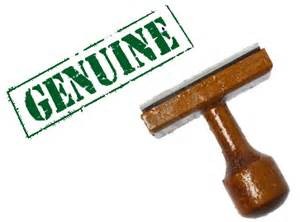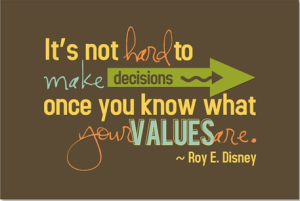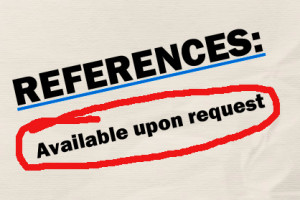This post started with a tweet from @hiringsocial and @FidelisPartners yesterday: “How to tackle those oddball interview questions.” My first reaction was why in the H-E double hockey sticks do people still ask these questions? I actually tweeted “most interview questions should be job related.” I wanted to explain further and I fully admit that my thought process is usually not protracted but I did feel that 140 characters would not suffice, so I wrote this post.
Many hiring managers surmise that interview performance predicts future performance on the job. While there may be some correlation between interview answers and job performance, I believe that often times interviewers infer causality where there is none.
An example given is asking a candidate what color crayon they would like to be. Even if there is evidence to back up the assumption that wild and passionate people more often times choose red it could also be that the person answering the question read this post. If that is the case they chose red because they are interviewing for a sales position and they know that you want a passionate person in sales. That begs the question, are interviewers measuring what they intend to measure?
Another issue is that male interviewers are more likely to ask these types of questions than their female counterparts. So I would argue that by asking these questions you are already interviewing with a gender bias. Hmm, I wonder why tech companies have a difficult time hiring women.
I believe that most of the people who ask these questions do so for one of a few misguided reasons:
We have always done it this way: Some people feel that if it was done to them, they get to do it to others. I believe they call this hazing in College.
It uncovers hidden traits: You mean like how your BS meter is a little more sensitive than others? I am no psychologist but you might as well do a Rorschach test with candidates.
You can discover things about people: This hearkens back to older school odd ball things from interviews. Like the Captain who would offer a cigarette to officers who came into his ready room. There were no ash trays. He wanted to see if they planned ahead. Or how about people who salt their food before tasting it? Does that mean they are presumptuous?
How they solve a problem: “How many people are using Facebook in San Francisco at 2:30 PM on a Friday?” It seems that some people at Google have asked this question to see how quickly people think on their feet. It could be valid if people at Google are usually put in a room with someone they have never met when they are asked to solve a problem.
What I believe can improve the interview process is to tell people WHY you are asking questions. For instance: “I would like to see how you work through a problem so I have a situational question for you… How would you estimate the number of M&Ms that could fit in a VW Beetle?” You get better and truer answers from people when they are put at ease. Shouldn’t we treat others as we would like to be treated?
The same rules apply for behavioral interviewing. In behavioral interviews you want candidate’s answer to include the situation or task they were doing, the action they took and the result or outcome. Usually interviewers do not mention this fact and they do not get good answers. Interviews are more predictive of future performance if you let people know what to expect. That is why I tell people what to expect from the interview process.
Interviewers CAN use some “oddball” questions in the interview process if they explain why they are asking the question. When companies ask questions that seem to come out of left field, without context, it does not necessarily tell you if they are a good match for the company or the position. What it probably tells you is that they are very good at interviewing.
Think about it… your best employees… your best co-workers… the ones you can’t do without… where they the best interviews you ever had? Did they have the best looking resumes? I doubt it.
All that said… any candidate, as the Social-Hire post says, should be prepared for the oddball interview question. Or, if you dare, maybe just ask the interviewer “Hey buddy, why don’t you just ask me what you really want to know about me? Why do we have to play this game? How about this… you be honest with me and I will be honest with you. Because I really don’t want to work here unless I can be successful.”
Al
We are called to be bold.
Joshua 1:9






